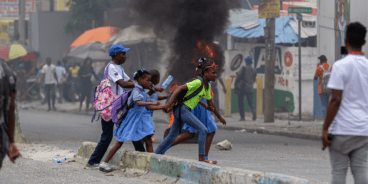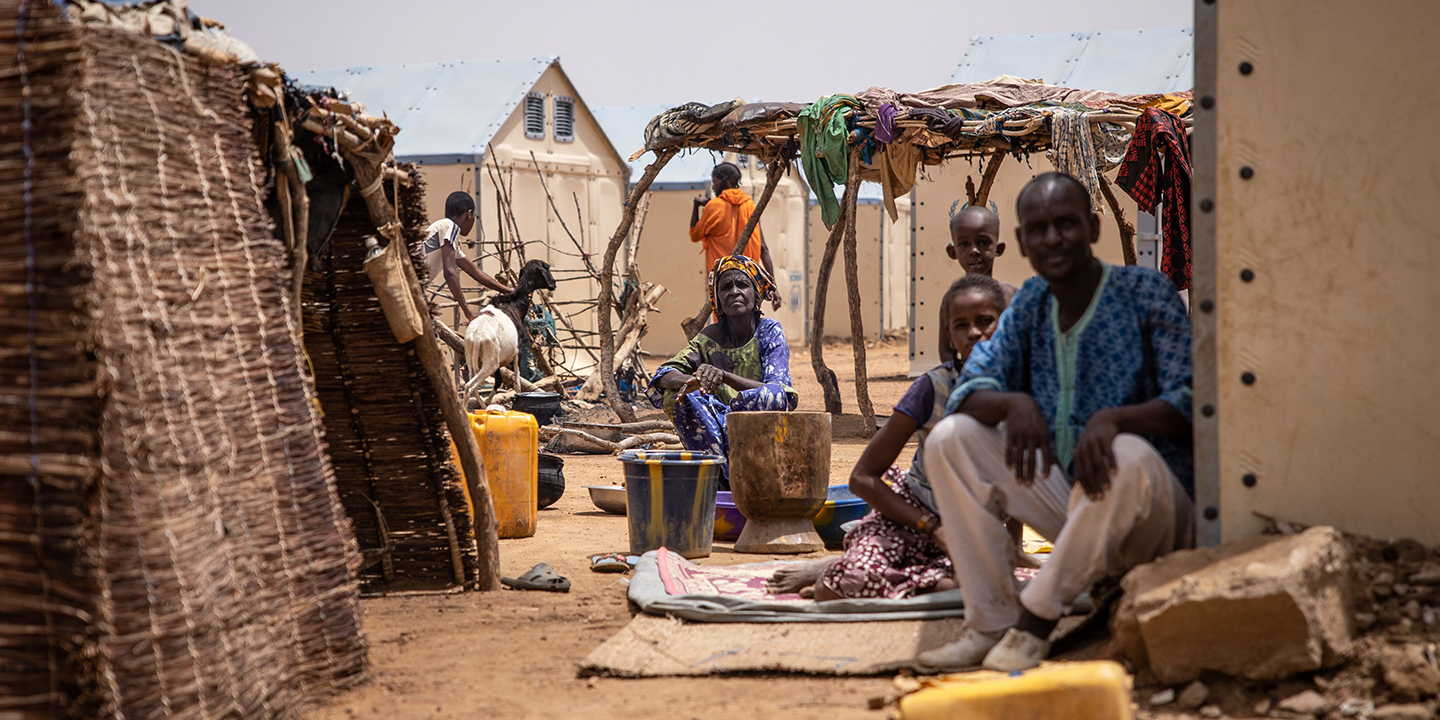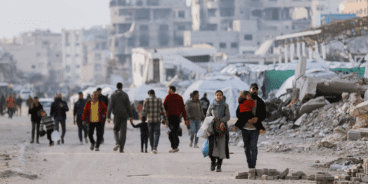

Atrocity Alert No. 263: Burkina Faso, Ethiopia and Syria
Atrocity Alert is a weekly publication by the Global Centre for the Responsibility to Protect highlighting situations where populations are at risk of, or are enduring, mass atrocity crimes.
BURKINA FASO: THE FASTEST GROWING CIVILIAN DISPLACEMENT CRISIS IN THE WORLD
Burkina Faso is the fastest growing displacement and protection crisis in the world according to the UN Refugee Agency (UNHCR), with 237,000 people forcibly displaced in the first half of 2021 alone. More than 17,500 people have also fled to neighboring countries, almost doubling the total number of Burkinabé refugees in the past six months. In total, more than 1.3 million people in Burkina Faso – primarily children (60.5 percent) and women (23.4 percent) – have been internally displaced since the start of 2019.
UNHCR warned that the speed of displacement shows no signs of slowing as attacks by Islamist armed groups “continue unabated” and have become “more frequent and increasingly violent.” Targeted attacks against civilian populations have escalated in recent months in the North, Center-North, East and Sahel regions. At least 178 civilians, including children, were killed in June alone. Those forced to flee recount killings, torture, kidnappings, looting, extortion and attacks on markets, health centers, schools and places of worship.
Extremist violence has also led to an increase in sexual assault and the exploitation of women and girls. According to reports, women have suffered from harassment while registering for humanitarian aid at some displacement sites. They have also allegedly been asked for cash in exchange for adding their names to government-controlled aid eligibility lists.
In Kaya, Center-North region – where there are approximately 500,000 displaced people and 60,000 experiencing emergency hunger levels – displaced women were also reportedly asked to trade sex for access to food by local men, including community leaders, who claimed to be registering people in need of aid. Although the Burkinabé government oversees humanitarian operations in the country, it has recruited community volunteers to manage the registration process in Kaya since the system was overwhelmed by the influx of new arrivals. Aid workers have suggested that similar abuses to those reported in Kaya are also prevalent at other government-managed displacement sites.
Burkina Faso is one of the world’s most neglected and under-reported humanitarian and human rights crises. Efforts to prevent further violations at displacement sites – including establishing credible complaint mechanisms and providing psychosocial support – must be prioritized. Protective services should also be increased while ensuring that security patrols do not lead to further abuses.
ERITREAN REFUGEES FACE POTENTIAL WAR CRIMES IN TIGRAY
Since the outbreak of armed conflict in Ethiopia’s northern Tigray region in November 2020, tens of thousands of vulnerable Eritrean refugees have been subjected to myriad abuses by various parties to the conflict. During January satellite evidence emerged of the destruction of two refugee camps in Tigray, Hitsats and Shimelba, which housed at least 25,000 Eritrean refugees. The destruction included the razing of approximately 1,000 structures, including homes, aid warehouses and civilian infrastructure. Eritrean forces, who have fought alongside the Ethiopian National Defense Forces (ENDF) in Tigray, may have been responsible for the destruction of at least one of the camps, while reports indicate they have also forcibly returned refugees to Eritrea.
Eritrea’s dictatorship is one of the most repressive in the world and is responsible for widespread and systematic abuses and violations of human rights. The UN Refugee Agency (UNHCR) estimates that there are approximately 145,752 Eritreans in neighboring Ethiopia.
Earlier this month fighting between government allied forces and the rebel Tigray Defense Forces escalated in and around the Mai Ani and Adi Harush refugee camps. At least two refugees were reportedly killed by armed groups and there have been reports of arbitrary arrests, beatings and looting. On 15 July UNHCR’s Representative in Ethiopia, Ann Encontre, warned that, “tens of thousands of refugees, fearful for their lives, are currently trapped and unable to move due to the insecurity and ongoing movement of troops in the area” and reminded parties to the conflict of the civilian character of the camps.
On 27 July Babar Baloch, UNHCR’s spokesperson, warned that the 24,000 Eritrean refugees who are now trapped in Mai Aini and Adi Harush are facing “intimidation, harassment and are living in constant anguish.” Baloch reported that the refugees have been completely cut off from humanitarian aid since 14 July, with the last delivery of food taking place in late June. An additional 55,000 Eritrean refugees hosted in the Afar region are also being threatened by increased fighting near their camps.
Deliberate attacks on refugees and the intentional blocking of humanitarian aid are prohibited under international law, amounting to a war crime. All parties to the conflict in Tigray must ensure that refugees are protected from ongoing hostilities and allow for the unimpeded flow of aid to those in desperate need of life-saving assistance.
DEADLY MILITARY ESCALATION IN NORTHWEST SYRIA
Despite a March 2020 ceasefire between pro-government forces and armed opposition groups in northwest Syria, violence against civilians has intensified in recent weeks. Since 15 July dozens of civilians have been killed in the towns of Iblin, Sarja, Ehsin and Fuaa in Idlib governorate as a result of government shelling. Syrian government artillery struck the village of Iblin on 22 July, killing 7 civilians, including 4 children. According to the UN Children’s Fund, 17 children were also killed in northwest Syria due to attacks that took place earlier in the month.
The March 2020 ceasefire, brokered by Russia and Turkey, was reached after a year-long offensive conducted by the Syrian government and allied Russian forces across the northwest. The military campaign killed over 1,500 civilians and displaced nearly one million. The UN Human Rights Council-mandated Commission of Inquiry on Syria found that Syrian government and Russian forces perpetrated war crimes in Idlib and that there are “reasonable grounds to believe” that they intentionally terrorized civilian populations.
In northwest Syria there are now 3.4 million people in need of humanitarian aid and 2.7 million internally displaced, including 1.6 million living in camps or informal settlements.
Despite the ceasefire, hostilities have escalated since January 2021. Ongoing fighting, shelling and airstrikes – perpetrated by forces loyal to the Syrian government – have damaged or destroyed medical facilities, markets and schools, greatly reducing civilians’ access to food, water, healthcare and shelter. Farhan Haq, Deputy Spokesperson for UN Secretary-General António Guterres, highlighted on 23 July that “such attacks raise further concerns about compliance with international humanitarian law, which requires the parties to take all feasible precautions to avoid and minimize civilian harm.”
All parties to the conflict must maintain the ceasefire in northwest Syria, uphold their obligations under international law and ensure the protection of civilians.
Related Content


Atrocity Alert No. 434: Sudan, Ethiopia and the UN Human Rights Council
